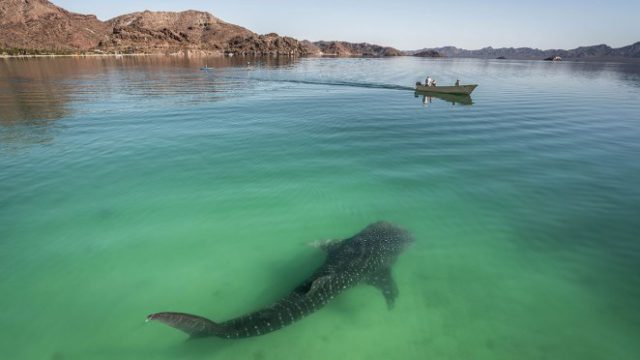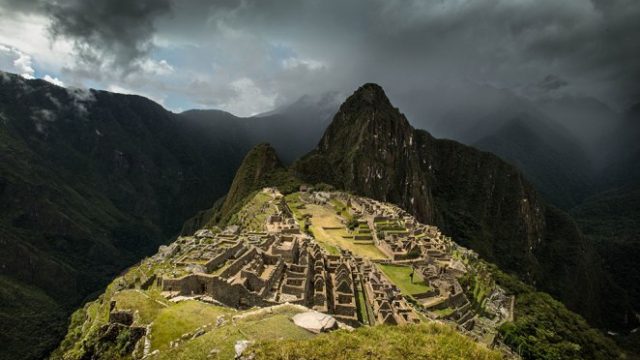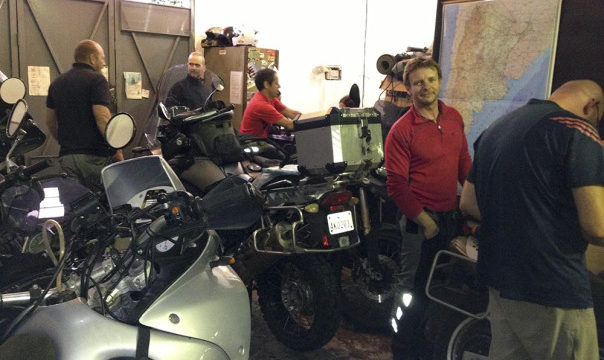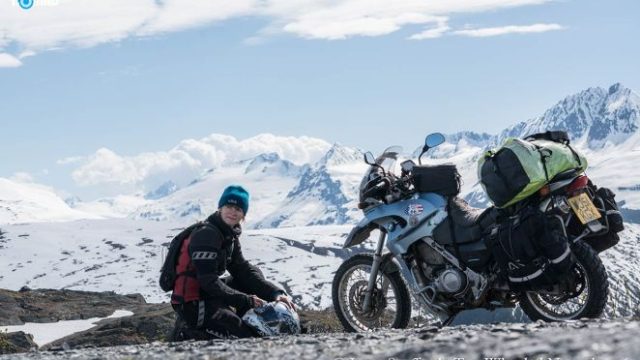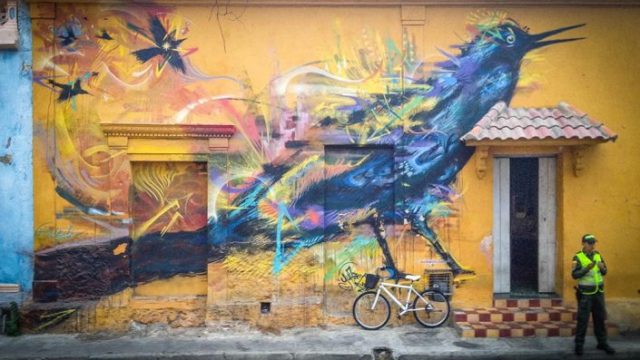One year, 18,000 miles on moto and five countries into the trip, we are still wending our way up South America—somewhat slowly—loving the two wheeled life more than yesterday but less than tomorrow…
Beneath a cloud-strewn sky, Lima’s bustling Miraflores appeared decent enough and initially I deemed the traffic no more demanding than La Paz or Buenos Aires, feeling thankful to the city angels that my prayers had been answered. Riding in those two cities was hellish enough. Entering Peru’s capital seemed to dispel the dark shadows that had sporadically plagued my soul. I’d been dreading Lima’s loony roads for weeks; fear had waited in the dark recesses of my mind, ready to pounce. Or was I simply adapting to the idiotic drivers of South America’s big cities? In part yes but there, nope, wrong again. The notorious road users of downtown Lima were a notch above moronic leaving the situation nails-in-the-coffin-hopeless. I’d not honked my horn as frequently—for so long—at a given time in my two year riding career; not until venturing eight miles from the BMW Motorrad garage to our accommodation. At night.
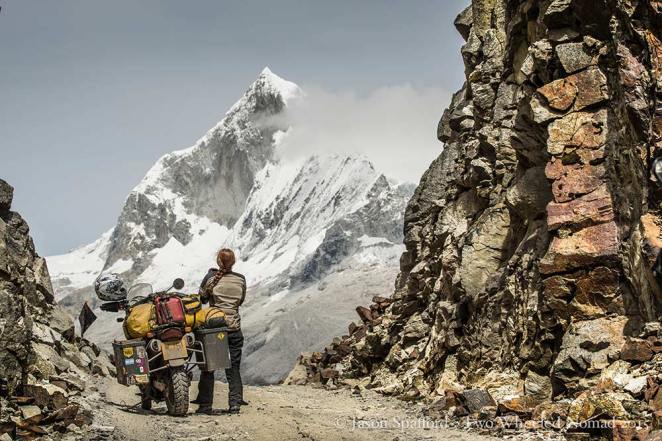
A shaft of anger opened up inside me and I started to work myself up into a whirling froth. Anger jostled with fear but both nipped at my belly as people elbowed past me in their two tonne people carriers. ‘Back off buster, I beg you. Just stop trying to sandwich me in the saddle’. My voice shrilled in a voice like sand against stone. I swerved around a dog’s corpse whose grey intestines wormed through the opening and oozed where they’d ruptured. Faltering, I squeezed my eyes closed to bolster my courage. All over my brain, lights were flickering on, doors were creaking open. Some of those doors led directly to our lodging but there was also the voice of Pearl inside me saying, ‘Whoa, keep going—you’ve not escaped the bus butties or four wheel drive focaccias just yet.’
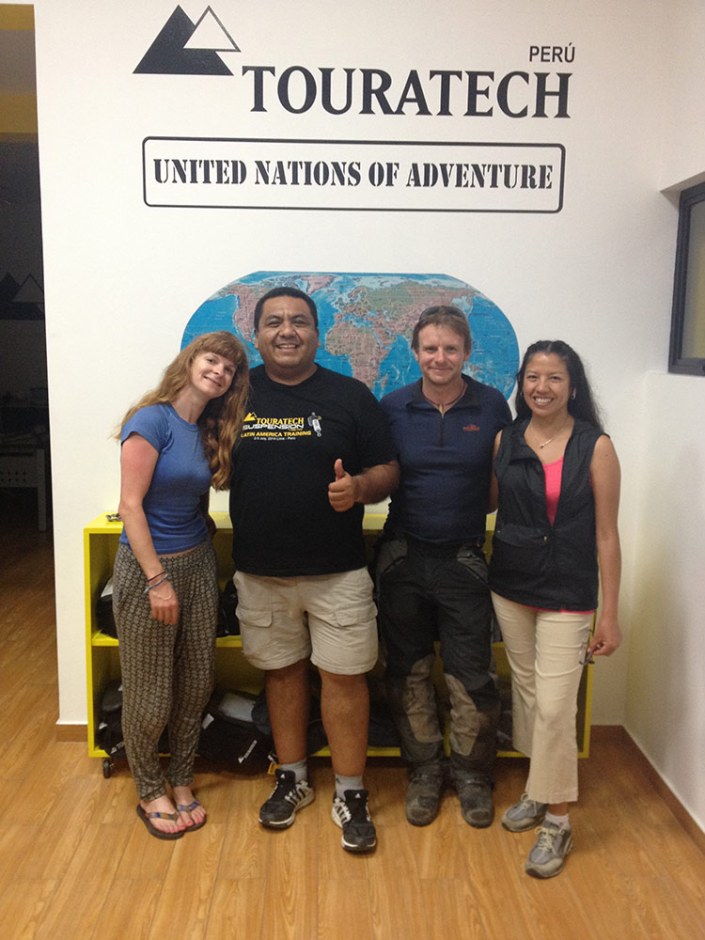
I opened my eyes after half a heartbeat. Clouds had started to gather, crowding the sky like lumbering beasts. Feeling the inner seethe of frustration inside a grinding wheel of terror, a whole city’s worth of boneheadedness came crashing down like a shelf full of shoes, all around my head at once—too overpowering to bear. Pleading gestures and dodging demolishment by the skin of my teeth was one thing in this black-souled and brazen traffic, but glimpsing a badly injured motorcyclist in an ambulance made my soul go cold. It seemed to hover half in my body and half out, as though it hungered to leave, to travel down a different road and find my happy place. The sight splintered my resolve. Breaking out of a thick knot of cars, I rode with the agility and speed of a frightened pack rat, fleeing a rising flood.
Home has definitely become where the hostel is, that day being Hitchhiker’s Backpackers on Bolognesi. When I narrowly dodged a coverless manhole and pulled into our gated sanctuary, worry still lined my forehead. I deflated like a porcupine bladder pricked with a quill and my shoulders sagged with the respite. Having beat the horn like I was playing a pinball machine, I’d have been better off asking every aggressive bus driver, “Excuse me Sir, would you mind terribly not mowing me down? Much obliged, old sport. Tally ho!” Let the world grind in its eternal and ponderous motions.
Steeped in a fog known as gurúa, we woke up one morning to Lima huddled under a smothered mantle of raucous noise. A sullen mist that turned the sky a milky white, leaving it draped in a spiritless pall. This microclimate was described by Moby Dick as the “strangest, saddest city thou can’st see”. Although the metropolis wasn’t supposed to take her white veil until the winter months of April to October, my brows lowered as I squinted into the humid miasma, vainly attempting to penetrate its twisting mask. So why, might you wonder did the Spanish build the capital of their Andean empire at a place regularly cloaked in an opaque ghostly fog? Because in all likelihood, they wouldn’t have realised having established the urban setting in January—smack bang in the summer—when skies are an unending blanket of blue.
Having chance met and spent a few of days with Canadian Patrick and his crazier-than-a-box-of-frogs Aussie wife, Belinda, ‘two-up’ on their Suzuki V-Strom while meeted, greeted, wined and dined by motorcycle-traveller oriented Ivan and Enis, the managers of Touratech Peru, a week had passed and it was time to ‘Vamos’, once again before getting comfortably stuck in a place. Ivan had even recommended staying in a convent, a two minute walk from the Touratech premises and half the price of our backpackers. Barely retaining a grip on Lima’s ludicrous traffic—stronghold on my sanity weakened somewhat—we fled to the Pan Americana’s sand blasted highway. Lima’s wrath will sweep you from the road like a bit of goosedown in the wind if you’re not careful.
Skirting around the headland lapping up the calm coastal views of the Pacific on our left, giant dunes on our right, life became quiet again. Big black and white tipped caracaras punctured the morning stillness; they flirted with the ragged edge of the bluff, diving close, hovering on the updrafts, then canting their wings to soar away. The sun shone intently above the cloud-puffed horizon and a gentle band of blue arced across the world—melting into the spaces between the mountains, outlining the tufts of trees on the crests. Tension trickled from my body, leaving me feeling as light as a dandelion seed. Into that peace I rode into my happy place, which swelled with the rumbling power of Pearl.

Plains collided with indigo peaks so jagged and lofty, they lanced the sky’s long streamers on the green hilly road to Huaraz. We’d kissed goodbye to a straight track of brutal sun, Lima’s rays having penetrated my body in a thousand places. The benign wind had seized my plea and blew it out across perennially glaciered white peaks, which knifed their way through stretching mantles of grass-green valleys. Welcome to the Cordillera Blanca, the highest tropical mountain range in the world, second in height only to the Himalayas. Something told me its 18 staggering summits of more than 6,000 metres wouldn’t let me forget this region for a second.
Andean village Huaraz—90 per cent of which was wiped out by an earthquake 45 years ago—would never win any beauty contest but at least we found ourselves tucked away from the sprawl at ‘La Cabaña Hospedaje’, below a rooftop that commanded one of the most embracive panoramas I’d ever laid my eyes on. And our thanks go straight to Paul Pitchfork—a seasoned Tenere rider living in Peru—whom we randomly clocked ambling towards the accommodation within minutes of our arrival to Huaraz. Don’t you just love it when the universe is feeling generous?
Jason and Paul talked unceasingly; I smiled as I listened to the pair of them pick infrequent moments to come up for air. A light kindled in Paul’s eyes as he meticulously pinpointed the ‘must see’ spots on the map for us, deep into Peru’s least disturbed mountains. No tourists, just follow this squiggly line to a gateway into the backwaters of Peruvian life. This guy’s heart was ensconced in Peru as I caught a wistful nostalgia that gleamed in his eyes. When I suggested just that, he raised an eyebrow and grinned, shooting me an agreeable glance from the corner of his eye and made a delicate gesture, the way you’d brush aside a cobweb.
Huascarán National Park, packed full of Andean leviathans, encompasses practically the entire area of Cordillera Blanca above 4,000 metres. We were set to see a place home to 600 glaciers, endangered plant species and the poised Andean condor. Our route to peeking this hard-to-reach enigmatic utopia involved a rocky ride firstly to Yanama, a tiny mountain-enveloped pueblo (village). Paul had advised the track—although I’d correct gnarly tract—was a little rough to begin with. As soon as we started to climb and I turned the first corner, Pearl’s nose facing sharply down, my face went wan, filled with fear. Self-doubt gnawed at my ribs while worry sank knives into my gut, careening precariously down loamy soil. Lordy Lou, I was a hair’s breadth from losing control and we’d only just started out.

My muscles tightened when understanding dawned; there wasn’t going to be a rugged patch solely at the beginning; this was going to be fun all the way to the top. But something overrode and my brain quickly rewired. A passageway seemed to open in the air, allowing my soul to connect with Pearl’s. We must’ve communed because a door opened in my head and out flowed all the anxiety. An influx of adrenaline propelled me along the narrow dirt trail—peppered with potholes, scored with ruts and packed with loose stones and biggish rocks. I started riding with my ‘ripio’ head on. Talk about adventure riding, it was the toughest loose gravel for me to date, and I was loving it!
Jason reassuringly implored, “Lisa, just keep doing what you’re doing”. Okay my darl, I will. “Although I’d be much happier if you stuck to the left”, he deferentially added from behind. Fair enough, those precipices on my right were pretty sheer. It made Bolivia’s ‘Road of Death’ look like a day at the beach. Part way to the top, Jason asked, “Are you enjoying yourself, Lisa?”
“Yep! Sure am”, I blurted in a surge of glee.
“Good because you’re riding like a pro today. I’m impressed.” Jason had said that to me only a handful of times in the last twelve months, I was ecstatic and fed off his complement like a hungry pup. I think I dined out on it for a couple of days because my riding remained consistent.

The sun was in high broiling ascendancy at altitude and the effort from the off roading had sucked the moisture from my body and spread it over my arms and legs in a thick sheen of sweat. Every which way I threw my gaze, ancient mountains rose to scallop the sky with humps of white. Contouring around the steep hillside feeling the size of an ant, we reached Yanama. I was in an incredulous state of pure joy. I’d made it, kept Pearl upright albeit bungled through a few times on a wing and a prayer, but it hit me straight away. No passing gringos. Only local children who shrilled happily in the plaza, while their parents laboured over tending to their herd or tienda (shop); stable doors half open to admit the breeze. Dogs barked in joyous accompaniment and caracaras wheeled on the warm air currents. We’d entered the backdoor to a time-honoured Peruvian life. Images danced on the back of my lids, flickering as sleep numbed my body and blissfully coiled through my thoughts.
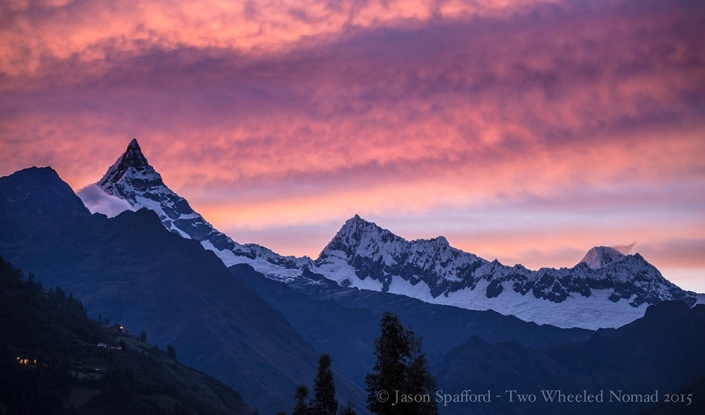
Night greyed into early morning, softly illuminating the hilltop villages on rolling swells of land under the lilac canvas of predawn. I awoke just as the first light stole into the world and squirmed to get the kink out of my back. I yawned, a wide, lazy yawn. Chickens pecked at their corn and piglets squealed endearingly in the hospedaje’s (hostel’s) enclosure. I watched a splinter of sun peek over the horizon and the mountains revealed themselves with an unfathomably, icy blue presence. Plants cast off their shadows and stood naked in the splendour, their arms lifted high to receive the sun’s morning blessing.
Up and up we bounced over bobbled terrain. Mid morning, we’d scaled a slender backbone of ridge and rode between two ragged shards of mountain. Rimming the incredible vista, ice capped glaciers thrust up like filed teeth, their spiny points raking the bottom of the clouds. Hundreds of natural drainage channels zigzagged through a white maze of ridges. I sneaked up on cougar-silent feet towards the edge to get a closer look. The route had left me drained of physical vitality, but filled with a silence so profound it felt downy against my soul. “A-maz-ing!” slowly oozed from my lips as I gazed with utter gravity, my head panning the grandeur as hawks effortlessly dove in delight.

Descending the rocky but not quite as gnarly switchbacks on the other side of the ridge, we passed the odd local minibus leaving us in a choking curtain of dust, rattling Pearl and me before it swept out into the landscape and formed into a dust devil that whirled into the sky. I ignored the twisting column spinning across my peripheral and kept my eyes on the stony ruts. I’d still a long way down to go. Dirt had routinely sloughed off the bank and formed pointed mounds, which we vigilantly meandered around. On a magnified scale, records of aluviones—a deadly mix of avalanche, waterfall and landslide—had devastated many sections of the region’s roads in the past, burying whole towns even; including Yungay, having wiped out thousands of lives over the last 300 years. Today, controlling the lake levels by building dams and tunnels helps prevent further onslaught from such horrific catastrophes.
Wheels back on the national park’s bottom, massive faces of rock loomed as an implacable backdrop to a jade green lake and glacial blue ribbon of water running down from above. Reflections of clouds sailed across the water. I picked up a pebble and tossed it into the centre of a cloud, rings distorting the peaceful image. A couple of ducks floated placidly passing a cow—half submerged chewing on the lake’s grasses. Hunger came on like a mini hurricane through my stomach.

My belly whined with gratitude over a late lunch in the rebuilt town of Yungay and begged for more. By the time I’d finished, satisfaction pervaded my body, trickling strength into my limbs. Another mountain-swathed village called Sucre took us in for the night. With a weak-wristed action, I parked Pearl for the evening and stood under a tepid shower. The water soothed like cool salve on an aching burn. I lay down and all the weariness I’d been staving off settled on my shoulders like a leaden cape. Fatigue lay upon Jason like a sodden blanket too. Exertion at a rather hefty altitude and making a school girl error of missing breakfast, had taken its toll on me but that mattered little and less in what felt like a distinctly different part of Peru, culturally and geographically; it was going to be hard to leave this little enclave.
I sat quietly, staring out across the plaza, the very fabric of darkness pulsed with a moonlit calm.


